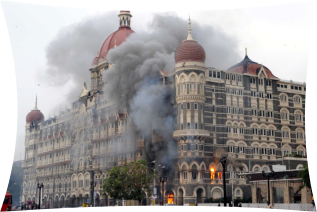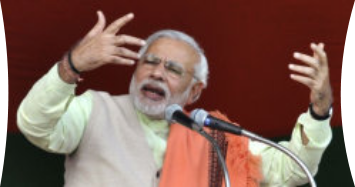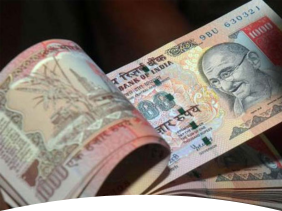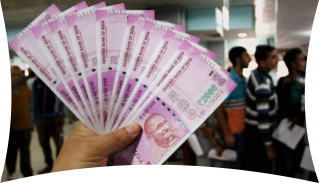





‘Knowledge is power’

Indian Prime Minister Modi's Demonetisation:
Is it Good or Bad For India And The Global Village?
MIDDLE EAST
World’s
encyclopedic
knowledge
compacted
in
your
hand




Raise the vol to listen to the
lady airing awe @ the SINGLE author encyclopedia
You may also like:
Disturbing stats on black-white inequality
Now girls are a THIRD more likely to go to university than boys
Sound effect: Bhajans (Hindu faith songs) helping Autism
Lessening productivity 50% of Americans have worked with a hangover
Scientists say fist bump is healthier than handshake ?Hug & kiss
Meet Darknet, the hidden underbelly of the searchable Web
When the world was busy with the American
presidential election results on 8th Nov 2016,
Indian media suddenly interrupted their
programmes to show PM Modi; who using his
executive authority declared a ban on the
Rs500 and Rs1000 bank notes from that
midnight. As if it was a nostalgic stimulus from
its first PM Nehru's 'When the world sleeps
India wakes up at the midnight hour', it almost
kept Indians awake with uncertainty. With the
black money holders not having a chance to
cash in that night, society facing endless serpentine
lines the next day, money not reaching the villages after
that, cash not being available for marriage, buying of
seeds and giving away daily wages even after that and
making a feast out of all that opposition ganging up
against the government India was shaken to the core. It
seemed, the only ones, who made money were the
economists and the media, who organised endless
debates.
Yes this demonetisation brought about a lot of problems
to the people of India and other countries, where Indian
currency is grudgingly accepted i.e. Nepal.
THE PROBLEMS:
1. The suffering of its people:
People in different countries suffer when their
nations go to war, face natural disasters or chose a
revolution. Indians had none of them. Furthermore,
even if demonetisation alone is seen as a cause of
the suffering, people did not suffer in previous ones.
So what happened this time?
Though designed to make the black marketer
suffer and pay, this demonetisation seems to have
made the ordinary people suffer instead; that too
for a prolonged period of time. In fact, almost as a
fodder for a socialist revolution, this
suffering has been mostly borne by the poorer sections of the society. Having left the barter
system long ago and not quite caught up with the banking ways, and therefore, exchange being
done entirely on cash the farmers, the labourers and the traders faced the heaviest brunt. While
the rich used their poor workers to get their cash in the long serpentine lines, the poor even had
to forfeit their daily wages to get theirs in them.
Let alone the hard earned cash problem, making housewives 'expose' their hidden cash, it
defiled family secrecy too. Even if we forget the government's lack of thought about the cash
needed for marriage, buying grain in time and giving wages; and even have some sympathy for
the repeated ministerial damage control meetings, one cannot forget the deaths of people while
cueing. Tharoon called it a disaster. One, however, wonders how the then USSR managed long
queues. Tharoor called it a disaster.
2. Corruption alleviation:
With cash constituting just 10% of the black money according to the economists (rest being in
gold, houses and in foreign bank accounts) demonetisation obviously could not do much to dent
the black money problem. In addition, with necessity being the mother of invention to the bad
guys too, and them being more cautious in addition, it did not quite dent their corrupt ways
either. Now, to the horror of all, the new advanced notes even merged with the old ones in the
hands of the corrupt.
3. Terrorism:
While attack on its army base took away the shine of
'helped in ending terrorism', the 'it was already
decreasing' took away the glow of 'it stopped stone
throwing' in Kashmir.
4. Legal issue:
Even if we were to disregard the anger of 'Why on
earth did they have to make different sized notes',
with paper notes specifically screaming 'Bank will
give this amount to you', some even termed the 'denial' illegal.
4. National prestige:
The Western Press hasn't been kind either. They have ganged up against mod's demonetisation
exactly the way they ganged up against him during the pre-election period. If those were to be
taken as International opinion on India, then the demonetisation certainly dented India's
international image.
The benefits:
This demonetisation wasn't a first timer; it wasn't Modi's idea originally; it wasn't done for his
financial gain and it wasn't done by him alone. It was done by a team sworn in secrecy for 6
months, who were asked to live in his house. However, with the economists just looking at the
loss of GDP, sociologist and the media criticising the people's suffering, politicians forgetting
their genetic differences and ganging up against Modi, and the general masses just wondering
how to get cash for they occasions yes this demonetisation has been decried by many through
their own angles. However, if a deeper holistic look is given to the issue, a significant benefit to
India can be discerned.
1. Even though a doctor was caught photocopying cash and cheating people, and the larger
note size only delayed cash distribution, the new notes are said to be technically advanced.




The Mumbai terror attack
Cash queue
Indian PM Modi
Indian bank notes





WOMEN’S POWER: ITS PAST, ITS PRESENT, ITS FUTURE: FEMOCRACY
WEB PAGES
OUR OFFERING
UPLOADED ITEMS
OUR EMAIL
kri200@womenspowerbook.org
QUESTION



















